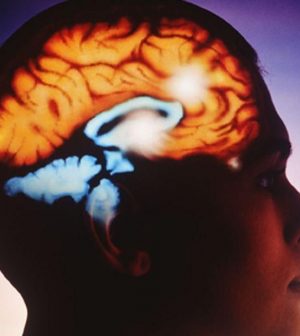- 10 Strategies to Overcome Insomnia
- Could Artificial Sweeteners Be Aging the Brain Faster?
- Techniques for Soothing Your Nervous System
- Does the Water in Your House Smell Funny? Here’s Why
- Can a Daily Dose of Apple Cider Vinegar Actually Aid Weight Loss?
- 6 Health Beverages That Can Actually Spike Your Blood Sugar
- Treatment Options for Social Anxiety Disorder
- Understanding the Connection Between Anxiety and Depression
- How Daily Prunes Can Influence Cholesterol and Inflammation
- When to Take B12 for Better Absorption and Energy
Trial Into Antioxidant for Parkinson’s Disease Yields Disappointing Results

FRIDAY, Sept. 17, 2021 (HealthDay News) – Researchers hoped to show that the natural antioxidant urate could delay Parkinson’s disease progression, but a study completed at Massachusetts General Hospital dashed those expectations.
The trial enrolled nearly 300 individuals recently diagnosed with early Parkinson’s disease, which affects the body’s motor system. Symptoms such as tremors, stiff limbs and balance problems progress gradually, and there is no known cure.
The research team found no significant difference in the rate of disease progression for those given the metabolite inosine for two years compared to the placebo group.
Inosine raises levels of urate in the brain and blood. It has appeared neuroprotective in preclinical models.
The inosine did not prove beneficial, and those who received it also had an increased rate of kidney stones, according to the study.
“The convergence of epidemiological, biological and clinical data from past research made a compelling argument that elevating urate, the main antioxidant circulating in the blood, could protect against the oxidative damage thought to play a role in Parkinson’s disease,” said senior author Dr. Michael Schwarzschild, a neurologist at Mass General and a professor of neurology at Harvard Medical School.
“While our study did not rule out a protective effect of urate in Parkinson’s, it clearly showed that increasing urate did not slow disease progression based on clinical assessments and serial bran scan,” he added in a hospital news release.
Though it didn’t provide answers to disease progression, Schwarzschild said the study was successful in other ways.
“The findings were very helpful in providing a reality check that now allows the field to move on to other therapeutic approaches,” said Schwarzschild. “We also learned a lot in terms of clinical trials science for Parkinson’s, and ways to conduct future studies that will increase their chance of success.”
The findings were published Sept. 14 in the Journal of the American Medical Association.
More information
The Parkinson’s Foundation has more on Parkinson’s disease.
SOURCE: Massachusetts General Hospital-Harvard University, news release, Sept. 14, 2021
Source: HealthDay
Copyright © 2026 HealthDay. All rights reserved.










